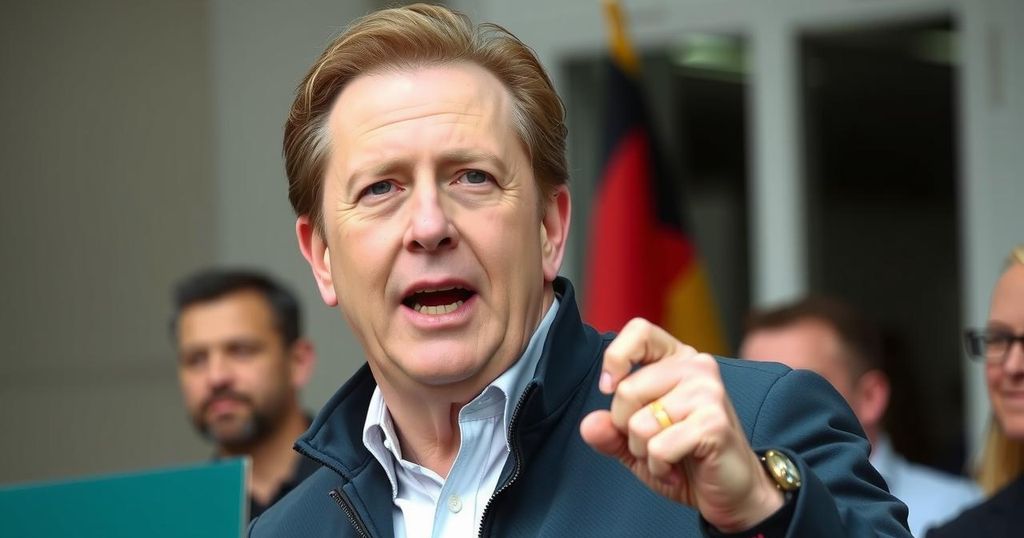Elon Musk’s Controversial Support for Germany’s AfD: Implications and Reactions

Elon Musk publicly endorsed the far-right AfD in Germany, claiming it is crucial for saving the nation from crisis. This caused outrage among political leaders and protests within the publishing company, raising questions about media responsibility and foreign interference in domestic politics. Musk’s motivations, linked to his business interests, further complicate the implications of his support for the AfD as elections near.
On December 30, 2024, Elon Musk reiterated his support for the German far-right party Alternative for Germany (AfD) in an op-ed featured in the Welt am Sonntag. Musk asserted that only the AfD could rescue Germany from potential “economic and cultural collapse,” emphasizing the party’s stance on immigration and economic policies. This endorsement sparked widespread indignation, notably from political figures like Friedrich Merz and Lars Klingbeil, who criticized Musk’s involvement as an inappropriate meddling in German politics. The publication of Musk’s piece led to protests among the editorial staff at Welt, resulting in a senior editor’s resignation. Amidst concerns regarding press neutrality, Musk’s influence and apparent motivations, including his financial interests related to deregulation, have raised alarm about the implications for German democracy.
In Germany, the responsibility falls upon media outlets to maintain objectivity, particularly in electoral contexts. While press freedom is constitutionally protected, editorial endorsements of political candidates remain a contentious issue. Interestingly, historical precedence exists for such endorsements, including a notable instance involving the Financial Times Deutschland, which supported a party in a previous election. However, as public broadcasters are bound by principles of impartiality, the tensions between personal opinions and expected neutrality continue to underscore the current political climate.
The relationship between Musk and the conservative Welt newspaper remains ambiguous, fueled by the pro-business sentiments of Springer CEO Mathias Döpfner. Observers have noted that Musk’s actions may serve to bolster far-right visibility within Germany. His op-ed aligns with broader concerns that his global political maneuvers may be geared towards promoting right-wing ideologies and interests internationally.
Elon Musk, a prominent figure in technology and business, has increasingly engaged in global political discourse, particularly with his unique platform on social media. His recent endorsement of the AfD, a right-wing populist party in Germany, has generated a significant reaction from both political leaders and the media. The AfD’s rise in popularity coincides with broad societal debates regarding immigration, cultural identity, and economic management in Germany. As elections approach, the influence of external figures like Musk complicates the political landscape, stirring discussions on media integrity and the role of influential individuals in shaping electoral outcomes.
Elon Musk’s endorsement of the German far-right AfD has provoked a complex and heated political discourse, highlighting significant issues regarding media integrity, political interference, and the dynamics of electoral campaigns. The reactions from established political figures underscore the stakes involved as Musk’s influence extends into German politics. This situation prompts ongoing examination of the intersections between power, money, and democratic processes, particularly as the election approaches. The response to Musk’s commentary also illustrates the tense climate surrounding political discourse in Germany today.
Original Source: www.dw.com







